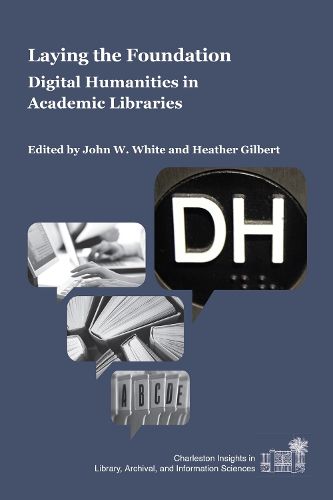Readings Newsletter
Become a Readings Member to make your shopping experience even easier.
Sign in or sign up for free!
You’re not far away from qualifying for FREE standard shipping within Australia
You’ve qualified for FREE standard shipping within Australia
The cart is loading…






Laying the Foundation: Digital Humanities in Academic Libraries examines the library’s role in the development, implementation, and instruction of successful digital humanities projects. It pays special attention to the critical role of librarians in building sustainable programs. It also examines how libraries can support the use of digital scholarship tools and techniques in undergraduate education.
Academic libraries are nexuses of research and technology; as such, they provide fertile ground for cultivating and curating digital scholarship. However, adding digital humanities to library service models requires a clear understanding of the resources and skills required. Integrating digital scholarship into existing models calls for a reimagining of the roles of libraries and librarians. In many cases, these reimagined roles call for expanded responsibilities, often in the areas of collaborative instruction and digital asset management, and in turn these expanded responsibilities can strain already stretched resources.
Laying the Foundation provides practical solutions to the challenges of successfully incorporating digital humanities programs into existing library services. Collectively, its authors argue that librarians are critical resources for teaching digital humanities to undergraduate students and that libraries are essential for publishing, preserving, and making accessible digital scholarship.
$9.00 standard shipping within Australia
FREE standard shipping within Australia for orders over $100.00
Express & International shipping calculated at checkout
Laying the Foundation: Digital Humanities in Academic Libraries examines the library’s role in the development, implementation, and instruction of successful digital humanities projects. It pays special attention to the critical role of librarians in building sustainable programs. It also examines how libraries can support the use of digital scholarship tools and techniques in undergraduate education.
Academic libraries are nexuses of research and technology; as such, they provide fertile ground for cultivating and curating digital scholarship. However, adding digital humanities to library service models requires a clear understanding of the resources and skills required. Integrating digital scholarship into existing models calls for a reimagining of the roles of libraries and librarians. In many cases, these reimagined roles call for expanded responsibilities, often in the areas of collaborative instruction and digital asset management, and in turn these expanded responsibilities can strain already stretched resources.
Laying the Foundation provides practical solutions to the challenges of successfully incorporating digital humanities programs into existing library services. Collectively, its authors argue that librarians are critical resources for teaching digital humanities to undergraduate students and that libraries are essential for publishing, preserving, and making accessible digital scholarship.